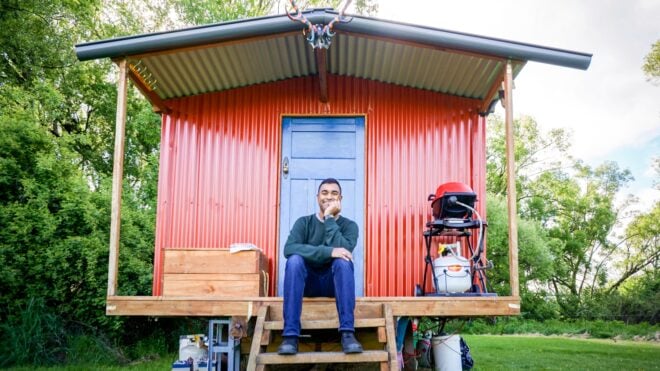Accept and Adjust

One of the hardest decisions about divorce in a family is how the parents will move forward while learning to live apart. But in the wake of a married partnership dissolving, a parenting partnership can still survive—and even thrive.
It's important to allow yourself to grieve the end of your marriage, with the goal of trying to accept and adjust accordingly. Kids want to know they'll be OK and they take their cues from their parents' own behaviors and actions.
Use a Business Tone

That doesn't mean any of this will necessarily be easy. If, while married, you and your ex had difficulty communicating, it's not going to get easier once you've split up. Adopt a businesslike tone when updating about the kids, working through conflicts or even scheduling pickups and dropoffs.
Spend Time With Friends

On days or weeks when the kids are with your ex, make sure you have daily contact with people you like. Plan dinners or outings with friends, especially on weeknights, when you would otherwise be hustling through the dinner/homework/bedtime routines.
Keep Your Issues to Yourself

Find friends or a therapist with whom you can discuss your issues. It's important to not keep them bottled up, but don't share them with your kids. Your marriage was a partnership with another adult. Your children are not there to hear "sides."
Stay Focused on Your Kids

When any of this starts to get overwhelming or you feel as if you've completely lost any say in or control of your life as a parent, remind yourself to stay focused on the kids. Successful co-parenting means putting them and their needs first. You don't have to love or like your ex, but it hurts your child to be aware that you don't.
Don't Use Your Kid as the Messenger

Kids aren't reliable messengers, nor should they be. If you need to remind your partner about an agreement—or even a school performance date or vacation plan—tell your ex directly. When your child is the messenger, they're also the recipient of any less-than-positive reaction your ex may or may not have, and they'll blame themselves for any hurt feelings or misunderstanding.
Listen

Divorce and co-parenting include listening—to your ex, to your therapist, to your attorney, to your kids. Listen to needs, listen to plans, listen to advice, listen to options. And, from your kids, listen to feelings. Don't try to talk them out of their feelings; don't try to cheer them up. Listen to what they're telling you, ask questions and listen some more.
Stay Positive

Do what you can to stay positive. That doesn't mean you should stuff away feelings of loss or ignore signs of depression. But remember that co-parenting is a gift to your kids, that you're a good parent, that this is the situation you're in and that you are what will make a difference in your child's life.
Make Requests

Co-parenting means negotiating a lot. Though the terms of your divorce probably outline the big things, including time spent with each parent, there are still other things that come up that you'll have to work through. Practice making requests, rather than demanding an extra week, an earlier pickup or a dietary change that you think is better for your child.
Accept That the Schedule Will Change

Kids' schedules change over the years; they get involved in new sports, change schools, take on new interests. Adults' lives change, too. They marry new partners and blend families, take new jobs with different requirements, go back to school, take on caring for a parent. For lots of reasons, the terms you carefully worked out for your divorce might need to change. Be up front about hardships that any changes might cause, but also be open to seeing the schedule change as a benefit to your child (not just your ex).
Try to Like Your Ex's New Partner

This is a tough one, of course, and a leap of faith, but it can also be freeing. You don't have to love them, you don't have to attend future weddings. They might even be the reason you're divorced in the first place. But giving up negative feelings and opening up to friendly ones make it much easier for your child to feel good about relaxing in both of their homes.
Focus on the Positives

Divorce can be devastating—not only for children but also for the adults. But if you're being honest, it can also have upsides. Find those upsides and remember them often. It doesn't mean you have to stop being sad about the loss of your marriage, and any of the baggage that came with it. But it's helpful in moving toward acceptance. It puts you in a good place to co-parent and enjoy your life as a parent of your child.
Plan for Quality, Not Quantity

Co-parenting is still possible, even if your custody agreement is not an exact 50-50 arrangement. Go for quality time with your child, if you feel the clock ticking during those hours or days you get together. Find ways to spend time together that let you be yourself, let you talk, let you enjoy the company of each other. Don't pressure yourself to create magic every time. Undivided attention, an interest in their lives, some spontaneous laughter and fun will let them know they're important to you, that you think about them and want them in your life.
Show Restraint

You are your child's advocate and kids need us to step up for them. But when the difficult situation is your ex-partner, your kids have a stake in things remaining calm. Show restraint when negotiating changes to your arrangements or when you see the agreement is not being followed. That doesn't mean not speaking up, but you know by now this can be emotionally fraught and your kids might perceive the anger as directed toward them.
Self-Care

It was true before your marriage ended and it remains true after: If Mama (or Daddy) isn't happy, no one is happy. So, while your co-parenting agreements and actions should always put your kids first, your ability to do so requires you to put yourself first in matters of self-care. You can't spend the next 18 years of your life feeling stressed, overwhelmed or unhappy with how you feel. Treat yourself as often as you can.
Get Support

Let friends help you. And if you let friendships slide while you were married, reconnect with old buddies and find ways to have regular contact. If you're starting from scratch, look into support groups for single moms or dads. You're not the first person to go through this and someday you'll want to support others going through it, too.
Don't Despair

If your divorce is new, you might be feeling nothing but despair: for your kids, for your finances, for your health, for your dreams and plans. Acknowledge those feelings, talk about them. And remind yourself that this is not an end but a new beginning—maybe one you never wanted but a new beginning nonetheless. You're a good parent, your kids need you to help them through this—and you can. Grieve, feel sad, struggle, be angry. But do not despair. You're a parent: You can (and must) get through this.




